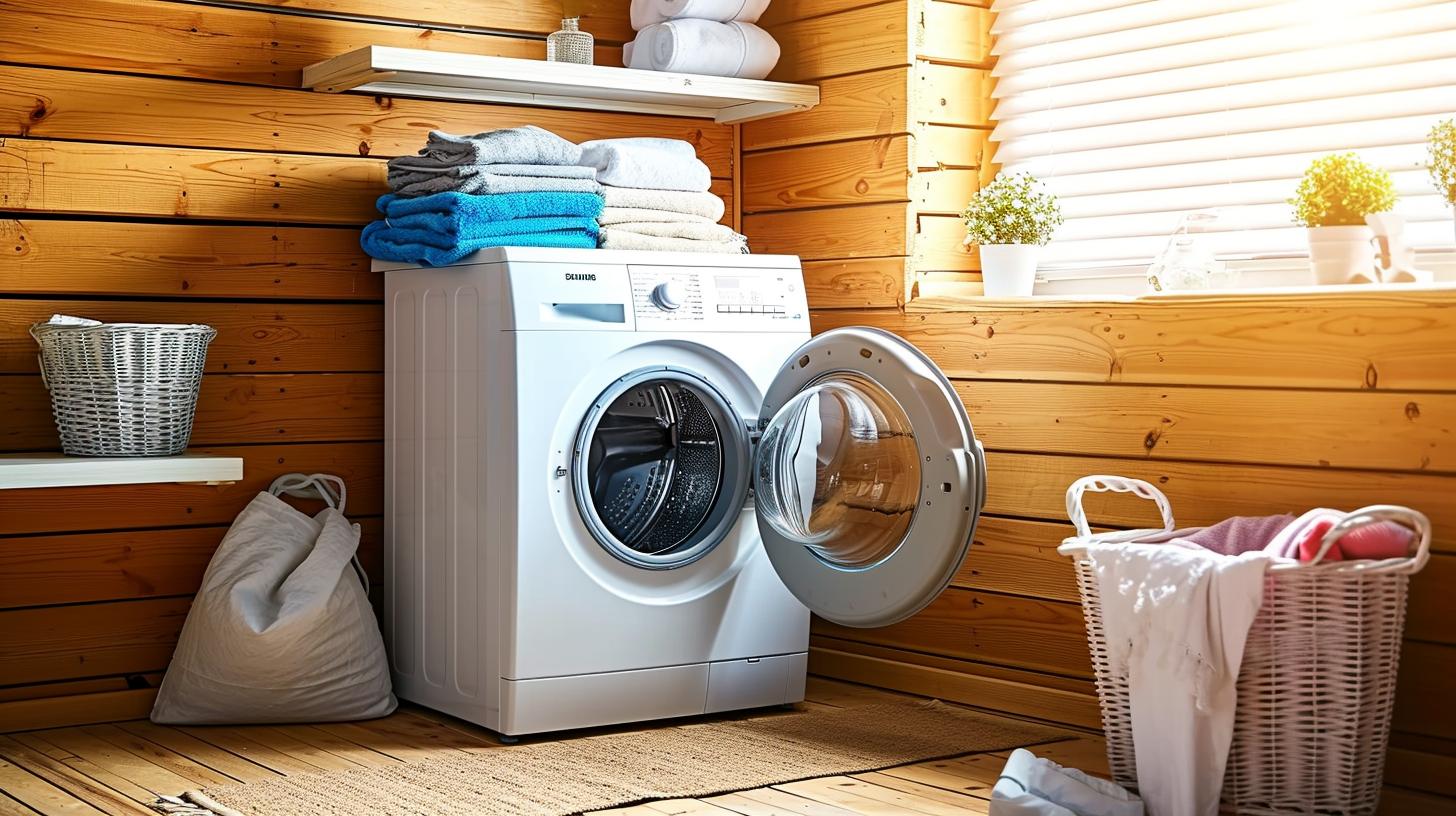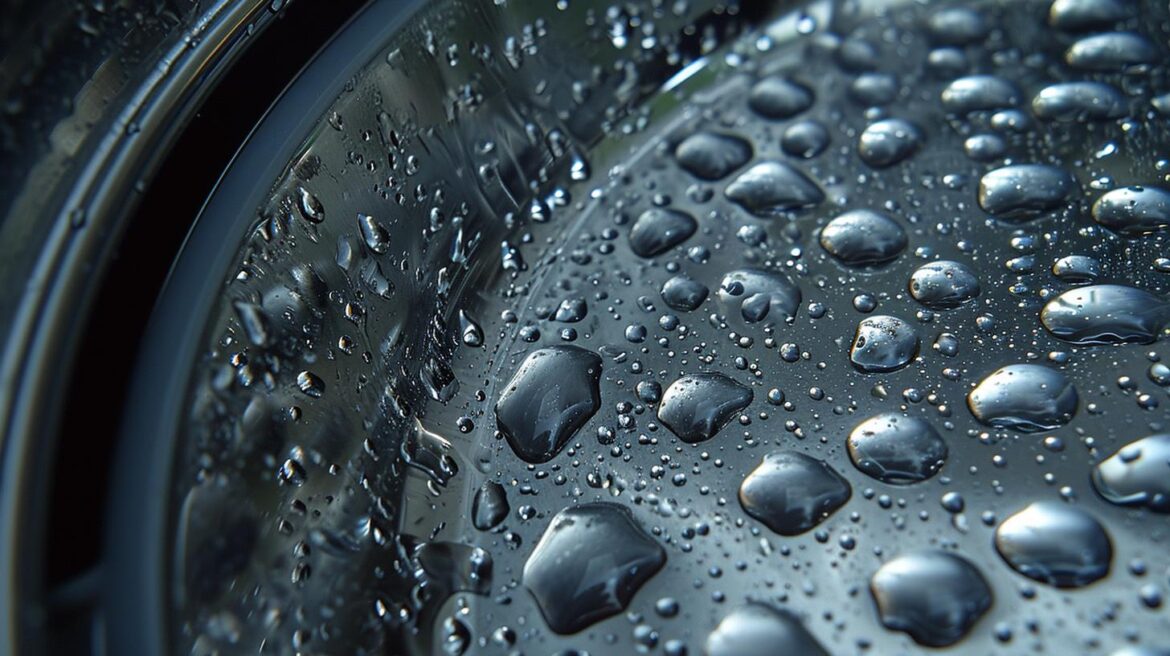Are you experiencing the frustrating problem of a samsung washer leaking water? A leaking washing machine can cause inconvenience and potential damage to your home.
In this article, we will address the common issue of Samsung washers leaking water, offering insight into identifying the source of the leak, troubleshooting techniques, DIY solutions for minor leaks, signs that indicate a need for professional repair, preventative maintenance tips, and a product review evaluating the performance of Samsung washers in relation to water leakage.
When it comes to dealing with a washing machine that is leaking water, it is important to understand the potential causes of the issue. From there, we will provide a step-by-step guide on how to troubleshoot the problem and offer practical tips and tricks for fixing minor leaks on your own. Our goal is to equip you with the knowledge and resources necessary to address this issue effectively.
Not all instances of water leakage from a Samsung washer necessitate professional repair. We will outline clear indicators that signal when it’s time to call in a professional for assistance. Additionally, we will offer preventative maintenance tips to help keep your Samsung washer in top condition and avoid future leaks. Lastly, we will evaluate the performance of Samsung washers when it comes to water leakage in order to provide you with a comprehensive understanding of this common issue.
Identifying the Source of the Leak
One of the most common issues that Samsung washer owners face is the problem of water leakage. This can be a frustrating and sometimes alarming issue, but it’s important to understand that there are various potential causes for this problem. By identifying the source of the leak, you can better understand how to troubleshoot and resolve the issue.
Internal Hose or Pump Issues
One possible cause of a Samsung washer leaking water is internal hose or pump issues. Over time, these components can become worn out or damaged, leading to leaks. If you notice water pooling around the washer during a cycle, it’s worth checking these parts for any signs of wear or damage.
Door Seal Problems
Another common source of water leakage in a Samsung washer is problems with the door seal. If the seal is damaged or worn, it may not effectively prevent water from leaking out during a wash cycle. Inspect the door seal for any cracks, tears, or signs of deterioration, and replace it if necessary.
Overloading or Imbalance
In some cases, overloading the washer or causing an imbalance during a cycle can lead to water leakage. When the washer is overloaded or off-balance, it may not effectively contain all of the water within the drum, leading to leaks. Be mindful of how much laundry you are putting into each load and ensure that the washer is properly balanced before starting a cycle.
How to Troubleshoot the Issue
When dealing with a Samsung washer leaking water, the first step is to troubleshoot the issue and diagnose the problem. Understanding the potential causes of the water leakage can help in determining the best course of action to rectify the issue.
One common cause of a Samsung washer leaking water is a damaged or worn-out door seal. This can result in water seeping out during the wash cycle. Another possible source of the leak could be a clogged or damaged drain pump, which can cause water to overflow and leak from the washer. Additionally, a loose or damaged hose connection may also lead to water leakage.
To troubleshoot the issue, start by inspecting the door seal for any signs of damage or wear. Check for debris or blockages that may be affecting the drain pump and hoses. It’s important to also examine the detergent dispenser and make sure it is not clogged, as this can also contribute to leaks.
Once you have identified the potential sources of the leak, proceed with addressing each issue accordingly. This may involve cleaning or replacing parts, tightening connections, or seeking professional assistance if needed for more complex repairs.
| Potential Causes | Troubleshooting Steps |
|---|---|
| Door seal damage | Inspect for wear and tear; replace if necessary |
| Clogged drain pump | Clear blockages; consider replacing if necessary |
| Loose hose connections | Tighten connections or replace if damaged |
DIY Solutions for Common Leaks
Water leakage from a Samsung washer can be a common issue that many owners may encounter. It can be caused by a variety of factors, such as worn out hoses, door gaskets, or faulty water inlet valves. In this section, we will explore some DIY solutions for common leaks and provide practical tips and tricks for fixing minor leaks.
One potential cause of water leakage in a Samsung washer is a clogged or damaged hose. To troubleshoot this issue, start by inspecting the hoses for any visible signs of wear and tear. If there are any cracks or holes present, these should be replaced immediately. Additionally, check for any obstructions that may be blocking the water flow through the hose.
Another common source of water leakage is a faulty door gasket. Over time, the door gasket may become worn out or develop tears, leading to water seepage during the wash cycle. To address this issue, thoroughly clean the gasket to remove any debris or mold buildup. If there are visible tears or damage, the gasket should be replaced with a new one.
Lastly, an inefficient water inlet valve can also contribute to water leakage in a Samsung washer. This valve controls the flow of water into the machine, and if it is defective, it can lead to leaks. Check the valve for any signs of corrosion or mineral deposits that may be affecting its performance. If necessary, consider replacing the water inlet valve to resolve the issue.
| DIY Solutions | Tips |
|---|---|
| Inspect hoses for wear and tear | Replace damaged hoses immediately |
| Clean door gasket thoroughly | Replace worn-out or damaged gasket |
| Check for corrosion in water inlet valve | Consider replacing faulty valve if necessary |
When to Call a Professional
If you have tried troubleshooting the issue of your Samsung washer leaking water and the problem persists, it may be time to seek professional assistance. Here are some signs that indicate the need for expert repair:

1. Excessive water leakage: If you notice a significant amount of water pooling around your washer every time you use it, this could be a sign of a serious issue that requires professional attention.
2. Unusual noises: Strange sounds such as grinding, squealing, or banging coming from your washer may indicate a mechanical problem that needs to be addressed by a professional.
3. Inconsistent water levels: If you find that your washer is not filling with water properly or is overfilling, this could be a symptom of a malfunctioning water inlet valve or pressure switch that should be checked by an experienced technician.
4. Persistent error codes: Modern Samsung washers are equipped with error code displays to alert users of potential issues. If you repeatedly receive error codes related to water leakage or drainage problems, it is best to consult a professional for proper diagnosis and repair.
When experiencing any of these signs, contacting a certified technician can help prevent further damage to your washer and ensure the safety and functionality of the appliance in the long run. Neglecting these warning signals can lead to more severe issues down the line, so it is important to address them promptly with professional assistance.
Preventative Maintenance
Regular Cleaning and Inspections
One of the most important preventative maintenance tasks for your Samsung washer is to regularly clean and inspect it. Over time, detergent buildup, dirt, and debris can accumulate in the machine, leading to potential leaks. Make sure to clean the detergent drawer, door seal, and drum of your washer on a regular basis. Additionally, inspect the hoses, connectors, and seals for any signs of wear or damage that could cause water leakage.
Use the Right Detergent
Using the wrong type or excessive amount of detergent can not only affect the cleaning performance of your washer but also contribute to leaks. Always use high-efficiency (HE) detergent specifically formulated for front-loading washers like Samsung models. Using non-HE detergents can create excessive suds that may lead to overflow and leaks.
Maintain Proper Loading Practices
Proper loading of your washer is essential for preventing leaks. Overloading the machine can put strain on the door seal and cause water to seep out during the wash cycle. Similarly, underloading may cause imbalance in the drum, leading to vibrations that can result in water leakage as well. Always follow the manufacturer’s guidelines for load capacity and distribution when using your Samsung washer to avoid unnecessary stress on the appliance.
By following these preventative maintenance tips, you can help keep your Samsung washer in top condition and minimize the risk of water leaks. Regular cleaning, proper detergent use, and mindful loading practices will all contribute to a longer lifespan for your appliance. Taking care of your washer now can prevent costly repairs or replacements down the road due to issues such as samsung washer leaking water.
Product Review
Samsung washers are known for their innovative features and efficient performance. However, some users may experience the common issue of a Samsung washer leaking water. This section will evaluate the overall performance of Samsung washers in relation to water leakage, providing insight into potential causes and solutions for this problem.
One of the most common sources of water leakage in a Samsung washer is a damaged or worn out door seal. This can lead to water seeping out during the wash cycle, creating puddles around the appliance. Another potential cause of leakage is a clogged or damaged drain hose, which can result in water spilling onto the floor during draining.
To troubleshoot the issue of a Samsung washer leaking water, start by inspecting the door seal and drain hose for any visible signs of damage or blockage. If these components appear to be in good condition, it is recommended to check the detergent dispenser and inlet valves for any leaks or malfunctions that may contribute to water leakage.
DIY solutions for minor leaks include cleaning or replacing the door seal, unclogging the drain hose, and ensuring that the detergent dispenser and inlet valves are functioning properly. However, if the source of the leak is not easily identifiable or if more serious issues are suspected, it may be necessary to seek professional repair services for your Samsung washer.
Conclusion
In conclusion, dealing with a Samsung washer leaking water can be a frustrating and messy problem, but it’s important to address the issue promptly for the longevity of the appliance and peace of mind. By identifying the source of the leak and troubleshooting the problem step by step, you can effectively diagnose the issue and find DIY solutions for common leaks.
However, it’s also crucial to know when to call a professional for repair if the problem is too complex or requires specialized skills.
Regular preventative maintenance is essential for keeping your Samsung washer in top condition and avoiding future leaks. By following simple tips and practices, such as regular cleaning and checking hose connections, you can minimize the risk of water leakage and prolong the lifespan of your appliance.
Additionally, it’s worth noting that product reviews play a vital role in evaluating the performance of the Samsung washer, especially in relation to water leakage. Understanding other users’ experiences can help you make an informed decision when purchasing or using this appliance.

